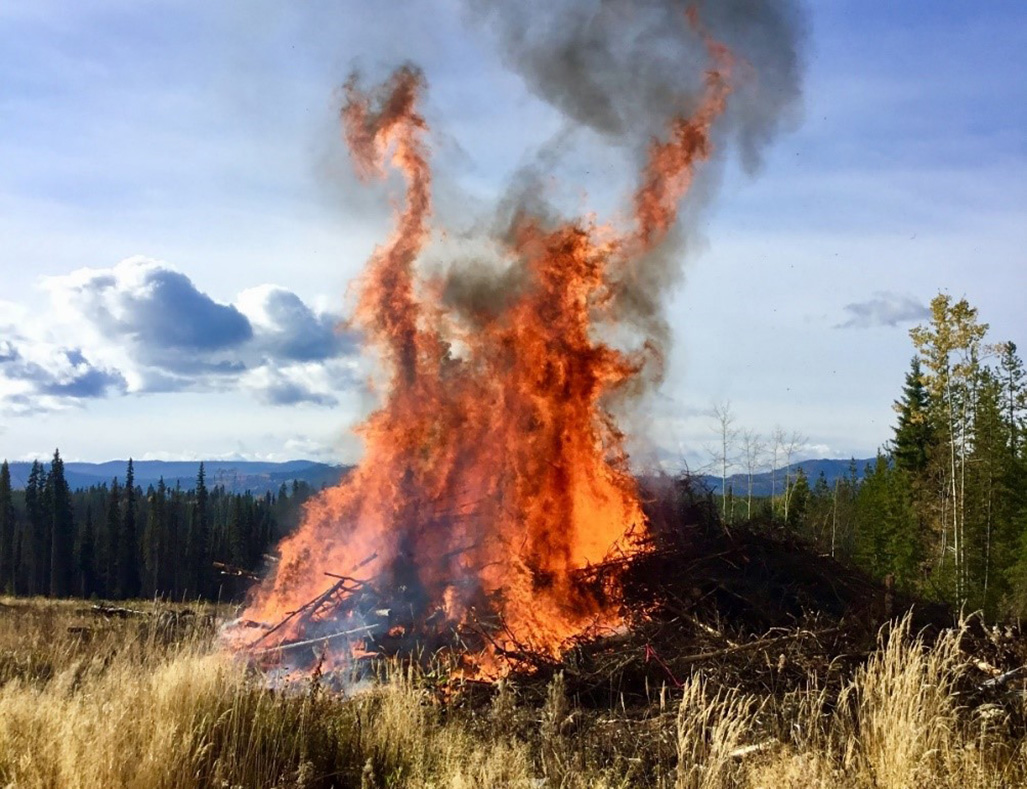
Investigation Examines Enforcement of the Wildfire Act
VICTORIA – A new investigation report released looks at how well government is investigating, deciding compliance and recovering costs from those responsible for causing wildfires in B.C.
The investigation found government has a well-defined and consistent process. Most decisions are appropriate, but there are some opportunities for improvement.
Approximately half of all wildfires in B.C. are caused by people, and in the past decade, government has spent approximately $2.7 billion on wildfire suppression.
Government has the ability to recover costs related to human-caused wildfires. If government suspects that a person or company has caused a wildfire or contravened the Wildfire Act, it conducts an investigation, offers a hearing and determines whether they were responsible.
This is called a determination. If they are found responsible, government may levy penalties, recover costs and order remediation.
“We are pleased to see that enforcement in these cases is generally appropriate,” said Rick Monchak a Forest Practices Board member. “We also note that government has already addressed a couple of the issues that came up in our review.”
For example, the board found that few determinations included an order for the recovery of damages to public resources like timber, forest land and grassland. Government has recently established policies to consistently assess those damages in future determinations. Government has also taken steps to notify people under investigation earlier in the process, which should help them better prepare to address the allegations made against them.
“Government has a responsibility to help the public understand that they could be liable for the costs of extinguishing a wildfire they cause or contribute to, and that these costs can be in the hundreds of thousands of dollars. More public awareness of the high price of risky or irresponsible behaviour may help reduce the number of human-caused fires,” Monchak said.
The investigation looked at 72 determinations made between 2015 and 2020. About 70% involved corporations, while the remainder involved individuals. The report lays out the findings under eight different topics, including matters such as fire origin and cause reports, cost determinations and timeliness.
Some of the issues the board found are the result of the way the Wildfire Act is written. The board is recommending government make changes to:
The last recommendation relates to a Supreme Court of British Columbia decision released on Dec. 5, 2022, that found a forest company was liable for the costs of a wildfire that resulted from debris-pile burning following timber harvesting. The board is concerned that forest licensees may be discouraged from reducing the fuel hazards left behind after harvesting if they are liable for the costs, should an accidental wildfire occur.
Licensees are legally required to abate the fire hazard by removing slash and debris from harvested sites, with the most-common method being burning. There has been some uncertainty about whether they can be subject to cost-recovery penalties, but the Dec. 5 court decision clarifies that they are, making the board's recommendation even more important.
The Forest Practices Board is B.C.’s independent watchdog for sound forest and range practices, reporting its findings and recommendations directly to the public and government. The board can investigate and report on current forestry and range issues and make recommendations for improvement to practices and legislation.
Contact:
Darlene Oman
Communications
Forest Practices Board
Phone: 250 213-4705 / 1 800 994-5899
